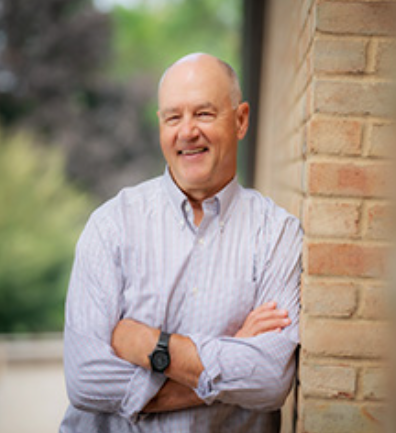Many people know that Martin Luther (1483-1546) breathed new life into the Christian concept of vocation. He inherited a tradition from the Middle Ages that held only monks, nuns and priests had vocations or callings. Because they had taken special vows of poverty, chastity, and obedience they were considered closer to God and therefore closer to salvation than those who had been left behind to keep things running on earth. A midwife or butcher might be doing valuable labor, but it was only for the sake of this life. Unlike the monk or nun, they were not earning merit for the next life.
Luther would come along and challenge this whole way of thinking. Based on a fresh reading of Scripture, he came to see that our efforts in this life do not bring us closer to God. In fact, nothing we do brings us closer to God. Rather, God in Christ comes to us and provides what we cannot earn or merit: his forgiveness and our identity as his beloved children. This has two huge implications for people of faith.
First, our good works do not earn favor with God. Rather our good works are for this life and this earth. As Luther noted, God does not need our good works but our neighbor does. Second, this means an infinite widening of the concept of vocation. Now everyone is called all the time. It is not restricted to a special class of people within the walls of a monastery or cloister. Vocation does not get you closer to God; it gets you closer to your neighbor and creation. It is a full-time, 365/24/7 endeavor. And callings take multiple forms. We are called to be workers, parents, grandparents, children, siblings, friends, citizens, church members and … and … well, you get the picture. Vocation is the way God uses us on earth to bring love, justice, and order to our world.
That sets the table for a more specific conversation on vocation and work. Many of you know that Luther’s protest against the church of his day involved the posting of theses on the church door in his German town of Wittenberg. I would like to borrow that method and put forth eight theses on the theme of career and calling. The theses build on one another and are designed to get readers to a deeper level of reflection. By the time you are done reading the theses you should have a better idea of how vocation changes our view of work and renders contemporary ideas of having a “career” somewhat suspect.
1. The roots of the word “career” help us to understand both its usefulness and its limitations.
Delving into the origins of the word “career” is illuminating. Many dictionaries have defined career as a chosen pursuit or profession as well as a path or course. Further, the Latin root of career is carrere which means to run or to race (such as “rat race”?). It can also mean “out of control” as the word “careen” suggests. I suggest it is fine to have a path or plan but not so helpful to be out of control.
2. A “career” suggests a deep and serious dedication to a craft.
From the famous to the lesser known, we applaud and trust people who demonstrated over time that they can be counted on to do a task well. Some names are almost synonymous with their careers:
- Steven Spielberg as a movie director
- Toni Morrison as a writer
- LeBron James as a basketball player
But this sense of dedication does not only include the headliners. I would also lift up our family mechanic, Nghia, who has been doing our brakes, tires, and oil changes for the past ten years—skillfully and honestly.
3. In our age it has become necessary to widen one’s career arc.
Until fairly recently it was unthinkable for the vast majority of people to contemplate a change in their careers. A glance at the paternal side of my family tree going back to the seventeenth century (mostly in Norway) says it all: to be a “Tranvik” was to be a fisherman or farmer. The industrial revolution and the great urban migrations changed this dynamic. Now Tranviks are (or were) streetcar drivers, salespeople, nurses, and teachers.
4. Unless guided by a sense of calling, a career is in real danger of careening off course.
As I have already noted, careers in and of themselves are good. It is honorable to work hard and achieve excellence in a craft. However, a temptation in our culture is to make a career an end in itself. When that happens, status, power and salary dominate the horizon.
The result is that a pursuit of career has us careening through life and probably causing serious damage in our workplaces, home, and friendships.
5. A sense of calling develops when you see yourself under a broader horizon of faith and community.
As suggested above, when your focus is only on career, your world begins to shrink and the questions you ask of yourself become predictable: How much money can I make? What do I need to do to receive the promotion?
But when you view your career under the broader rubric of vocation, questions like these tend to emerge: What are the needs of my community? What will happen to my marriage or family if I pursue a certain goal or position? Furthermore, when the sense of calling comes from the Christian story, the driving force is God’s tremendous love for us in Christ and the need to let that love flow into the world. Now the type of questions might include: Who is being forgotten or neglected? What about the poor? Are we taking care of creation?
6. Careers tend to be limited to the world of work, whereas a sense of calling never ends.
As we have seen from the time of Luther and the Reformation, having a calling extends far beyond the world of work. Our vocations are multiple. We move beyond ourselves into a complicated network involving spouses, children, siblings, church members, citizens, etc.
7. Callings are not only about the future; they involve attention to the messy details of life.
There is nothing wrong with making plans and thinking about the shape of the future. But the present matters, too! As I tell my students, they are not only preparing for a vocation (in other words, work), they have a “present time” calling to pay attention in class, do the reading, listen to their peers, et cetera. Sometimes we get caught up in such large plans and dreams that we neglect the crying grandchild or the roommate who needs an ear.
8. Callings are marked by suffering and joy.
There are many voices out there attempting to co-opt the understanding of vocation and make it all about “self-realization” and “self-fulfillment.” A Christian sense of vocation liberates us from this incessant talk about the SELF. A sense of calling is realistic about the stresses and burdens that come with vocation. Love of neighbor and creation is demanding and often leads to suffering. It needs to be constantly refueled by God’s love for us in Christ. But vocation also brings a deep sense of satisfaction in spite of frustration and obstacles. A profound and surprising sense of joy often embraces those immersed in their callings. Just don’t make it the focus. In vocation our eyes belong on the neighbor and their needs.



